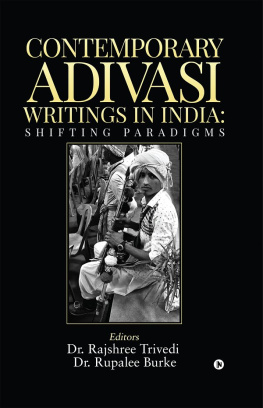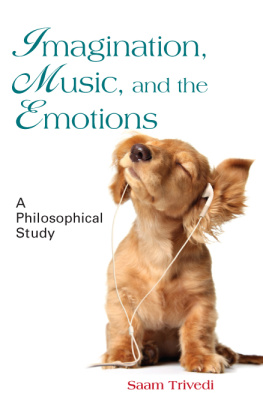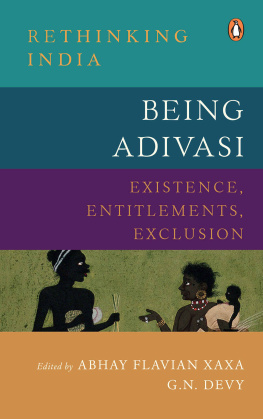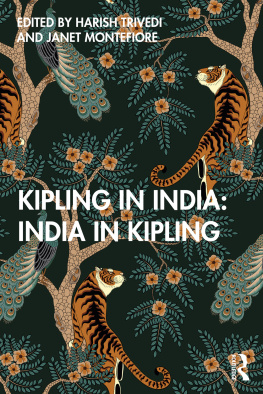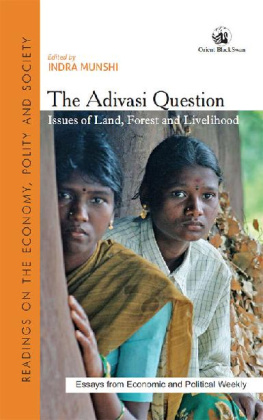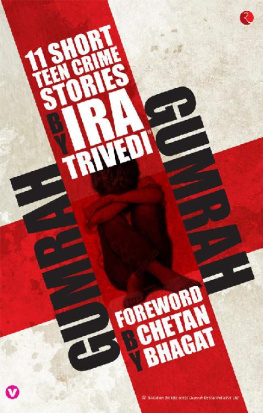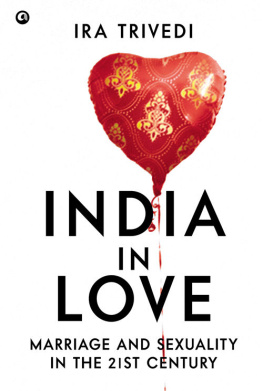Rajshree Trivedi - Contemporary Adivasi Writings in India: Shifting Paradigms
Here you can read online Rajshree Trivedi - Contemporary Adivasi Writings in India: Shifting Paradigms full text of the book (entire story) in english for free. Download pdf and epub, get meaning, cover and reviews about this ebook. year: 2018, publisher: Notion Press, genre: Romance novel. Description of the work, (preface) as well as reviews are available. Best literature library LitArk.com created for fans of good reading and offers a wide selection of genres:
Romance novel
Science fiction
Adventure
Detective
Science
History
Home and family
Prose
Art
Politics
Computer
Non-fiction
Religion
Business
Children
Humor
Choose a favorite category and find really read worthwhile books. Enjoy immersion in the world of imagination, feel the emotions of the characters or learn something new for yourself, make an fascinating discovery.
- Book:Contemporary Adivasi Writings in India: Shifting Paradigms
- Author:
- Publisher:Notion Press
- Genre:
- Year:2018
- Rating:5 / 5
- Favourites:Add to favourites
- Your mark:
- 100
- 1
- 2
- 3
- 4
- 5
Contemporary Adivasi Writings in India: Shifting Paradigms: summary, description and annotation
We offer to read an annotation, description, summary or preface (depends on what the author of the book "Contemporary Adivasi Writings in India: Shifting Paradigms" wrote himself). If you haven't found the necessary information about the book — write in the comments, we will try to find it.
Contemporary Adivasi Writings in India: Shifting Paradigms — read online for free the complete book (whole text) full work
Below is the text of the book, divided by pages. System saving the place of the last page read, allows you to conveniently read the book "Contemporary Adivasi Writings in India: Shifting Paradigms" online for free, without having to search again every time where you left off. Put a bookmark, and you can go to the page where you finished reading at any time.
Font size:
Interval:
Bookmark:
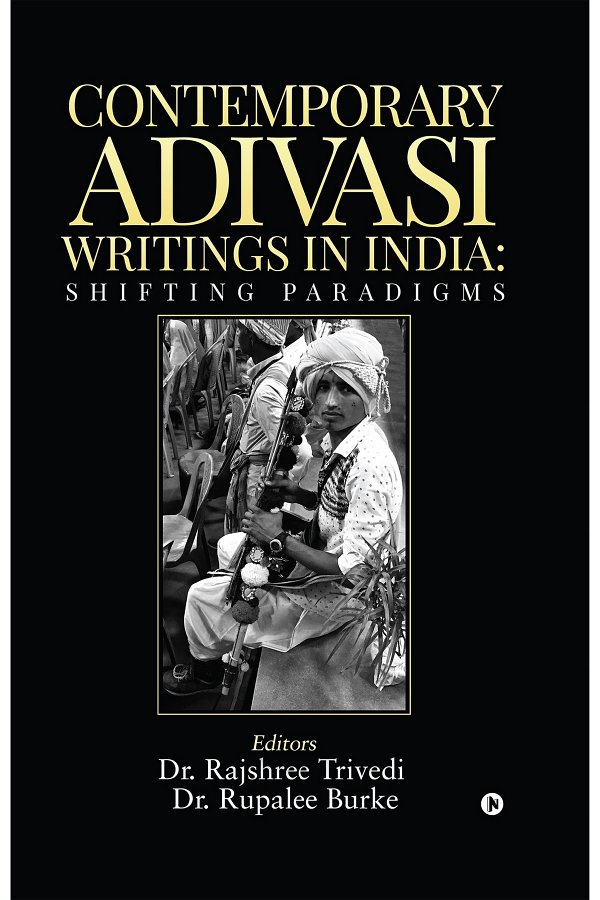


Notion Press
Old No. 38, New No. 6
McNichols Road, Chetpet
Chennai - 600 031
First Published by Notion Press 2018
Copyright Rajshree Trivedi & Rupalee Burke 2018
All Rights Reserved.
eISBN 978-1-64324-516-4
This book has been published with all efforts taken to make the material error-free after the consent of the authors. However, the authors and the publisher do not assume and hereby disclaim any liability to any party for any loss, damage, or disruption caused by errors or omissions, whether such errors or omissions result from negligence, accident, or any other cause.
No part of this book may be used, reproduced in any manner whatsoever without written permission from the authors, except in the case of brief quotations embodied in critical articles and reviews.
Cover Image Credit: Dr. Rupalee Burke
Dedicated to
The Adivasis across the world,
their oral traditions, ways of life,
their arts, their writings,
their endeavours in various fields
&
the non-Adivasis who collaborate with them
at several levels in the spirit of fellowship.
Acknowledgements
We would like to acknowledge with gratitude the prompt and wholehearted response we received from the contributors in the form of their articles without which we would have not have been able to put together this book.
We are grateful to our friends and families for their support and cooperation for carrying out this project unhindered.
We owe special thanks to Prashanth Subramaniam of Notion Press Media Pvt Ltd for making the publication of this book possible.
Dr. Rajshree Trivedi
Dr. Rupalee Burke
April 2018
Introduction
Literature by socio-culturally marginalised groups has all along been termed marginalised writing by the academia which is largely elitist. When the centre-margin equation is reversed, the centre is no longer the centre, likewise the margin is no longer the margin. Seen from an egalitarian perspective, writings by the Adivasis constitute the alternative canon and it is by recognising this fact that these writings are given the significance that is due to them.
The oral tradition (orature) is the bedrock of all written literature (ecriture). The Adivasis have an extremely rich treasure of oral literature which is an inherent part of their socio-cultural life. Down centuries they have kept their oral tradition alive by passing it on to subsequent generations. When with the growing influences of modern culture, the oral tradition started showing signs of endangerment, non-Adivasi individuals in a patronising way undertook documentation with a view to preserving what was rapidly disappearing. There was a phase when many oral narratives of Adivasis were published. That was the first intersection of the spoken word with the written word. But it was carried out by outsiders who trespassed upon the cultural world of the insiders. The question that arises in this context is whether these publications benefitted the Adivasis as much as it did the compiler-editors? But when the Adivasis were written about in literature by non-Adivasis clearly harm was done to them. In his interview with Catherine Thankamma, Narayan, the author of Kocharethi explains what prompted him to write the novel:
One reason was the growing realisation that creative writing was in the hands of the elite upper classes; the communities portrayed in those writings belonged to these classes. The adivasi when represented, appeared as a monochromatic figure; like the rakshasan or nishacharan of mythological stories. It was always a negative picture; he was depicted as apathetic, unable to react to injustice or worse, inhuman or sub-human, vicious He existed for the sole purpose of being defeated and/or killed by the forces of virtue and goodness, represented by the upper castes. The tribal was the asuran /the kaattaalan (demon). In Hindu mythology the demons are variously called r akshasan , nishacharan, asuran , and kaataalan . The last, literally means a forest-dweller but also carries the connotative significance of being uncultured who had to be killed by a deity wielding a shoolam (trident) or a savarna (upper caste) of divine parentage. There were a few of us who wanted to resist such a biased representation. We wanted to tell the world that we have our own distinctive way of life, our own value system. We are not demons lacking in humanity but a strong, hardworking and self reliant community. ( Kocharethi , 208209)
Writings by Adivasis, therefore, are a means of assertion against the socio-cultural oppression and hegemony they have had to suffer owing to their different status considered inferior. As in Narayans case, creative literature, for educated Adivasi writers, becomes a powerful tool for upward socio-cultural mobility. It becomes a site of resistance and a vehicle for them to tell their own story in their own words on their own terms despite the difficulties they face in getting their works published.
Writings by Adivasis are relatively an emerging area lacking in the attention and importance they deserve. The present book was conceptualised to offer original and contextualised chapters on various areas related to not merely contemporary writings by Adivasis but interconnected areas as is evident from the summaries of the respective chapters below.
Dr. Rajshree Trivedis chapter Land and Labour as Metaphors in Mahasweta Devis Short Fiction enlists, classifies and analyses the predominantly used megametaphors in Mahasweta Devis short stories from her anthologies Imaginary Maps (1995), Breast Stories (1997), Bitter Soil (1998), In the Name of the Mother (2004) and After Kurukshetra (2005). Based on the models of Zoltan Kvescses use and functions of metaphors in literature and Gerard Steens cognitively motivated discourse analytical approach, Dr. Trivedi undertakes a systematic study of LAND and LABOUR as metaphors of the distorted state of forest lands and their inhabitants the adivasis in decolonized India. The study addresses issues such as exploitation, subjugation, alienation, marginalization and dislocation of the Adivasis from ancient to modern times and explains them in terms of Mahasweta Devis use of metaphorical expressions.
Prof. Catherine Thankamma, the English translator of Narayans Kocharethi focuses on the inadequate representation of the life-ways, culture and writings of Adivasis in university syllabi across the state of Kerala as well as issues of publication and reception, and the importance of translation. Her chapter Othered in Ones Own Land: Adivasi Writing in Kerala takes the examples of two Adivasi voices of Kerala Narayan, the writer and C.K. Janu, the activist to identify and expose the politics of academic inclusion/exclusion. Narayans Kocharethi and two biographical works on Janu brilliantly perform the dual function of creating an enduring picture of a remarkable woman as well as providing an authentic and graphic account of the Adivasi struggle in Kerala against marginalization and exploitation and for their fundamental right to live with dignity. Thankamma regrets that neither the original Malayalam nor its English translation have made their way into the curriculum of any university in Kerala. The chapter explores the politics that govern the inclusion/exclusion of writings by Adivasis in the curriculum, the danger underlying willed exclusion and the need for a shift in perspective on the part of academia.
Font size:
Interval:
Bookmark:
Similar books «Contemporary Adivasi Writings in India: Shifting Paradigms»
Look at similar books to Contemporary Adivasi Writings in India: Shifting Paradigms. We have selected literature similar in name and meaning in the hope of providing readers with more options to find new, interesting, not yet read works.
Discussion, reviews of the book Contemporary Adivasi Writings in India: Shifting Paradigms and just readers' own opinions. Leave your comments, write what you think about the work, its meaning or the main characters. Specify what exactly you liked and what you didn't like, and why you think so.

